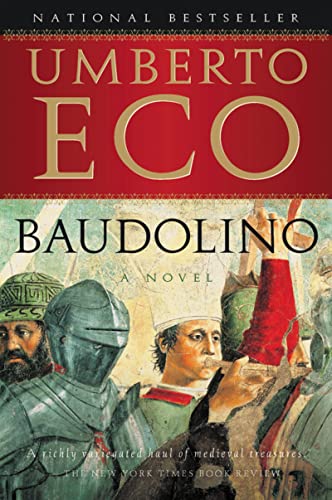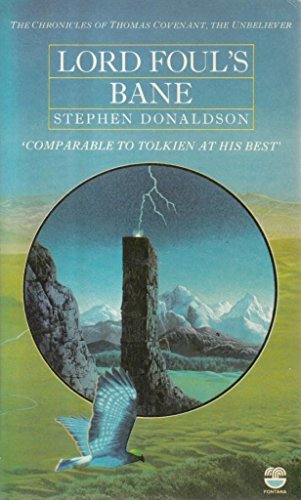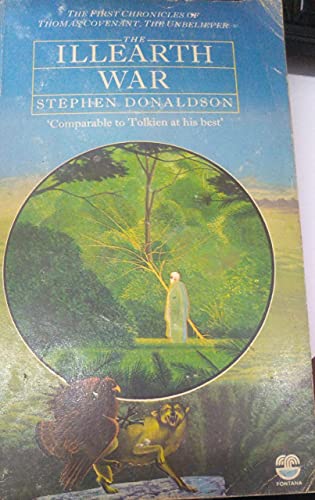Summary
Baudolino is a historical novel that weaves together fact and fiction, myth and reality, in a captivating tale of adventure, deception and the power of storytelling. Set against the backdrop of the 12th and early 13th centuries, the novel follows the life of Baudolino, a peasant boy from Alessandria, Italy, who is adopted by the Holy Roman Emperor Frederick I Barbarossa.
The story begins in 1204 during the sack of Constantinople by the Fourth Crusade. Baudolino, now in his sixties, rescues the Byzantine historian Niketas Choniates from the chaos and begins to recount his extraordinary life story. Born in 1137, Baudolino’s talent for languages and quick wit catch the attention of Emperor Frederick, who takes the boy under his wing and provides him with an education.
As Baudolino grows older, he becomes deeply involved in the political and religious intrigues of the time. He studies in Paris, where he forms friendships with other scholars and becomes fascinated by the legend of Prester John, a mythical Christian king said to rule a paradise-like kingdom in the East. This fascination becomes the driving force behind many of Baudolino’s adventures.
Throughout the novel, Baudolino’s gift for fabrication blurs the line between truth and falsehood. He forges letters, invents relics and concocts elaborate stories that shape the course of history. His lies and inventions become so intertwined with reality that even he struggles to distinguish between them.
The narrative follows Baudolino’s involvement in major historical events, including Frederick’s campaigns in Italy and his participation in the Third Crusade. After Frederick’s mysterious death during the crusade, Baudolino and his companions embark on a quest to find the kingdom of Prester John. This journey takes them through fantastical lands populated by bizarre creatures from medieval bestiaries and mythologies.
As the story unfolds, Eco explores themes of faith, reason and the nature of truth. Baudolino’s adventures serve as a vehicle for examining the power of belief and the ways in which myths and legends shape our understanding of the world. The novel also delves into the complexities of medieval politics, religion and philosophy, offering a rich tapestry of historical and cultural references.
The quest for Prester John’s kingdom leads Baudolino and his friends into increasingly strange and perilous situations. They encounter a variety of fantastical beings and navigate treacherous landscapes, all while grappling with their own desires, fears and beliefs. The line between reality and fantasy becomes increasingly blurred as the journey progresses.
Ultimately, Baudolino’s tale is one of self-discovery and the search for meaning in a world where truth is often elusive. As he recounts his story to Niketas, both narrator and listener are forced to confront the nature of history itself and the role that storytelling plays in shaping our understanding of the past.
Key themes:
- The power of storytelling and the blurring of truth and fiction
- The quest for knowledge and the limits of human understanding
- The interplay between faith, reason, and imagination
- The nature of history and how it is constructed
- The impact of myths and legends on human behaviour and beliefs
- The complexities of medieval politics, religion, and culture
Character Details
Baudolino
Baudolino is the protagonist and narrator of the novel. Born in 1137 to a peasant family in Alessandria, Italy, he possesses an extraordinary gift for languages and a talent for fabrication. His quick wit and charm catch the attention of Emperor Frederick I, who adopts him and provides him with an education. Baudolino is a complex character, embodying both cunning and naivety, idealism and pragmatism. His ability to spin tales and create convincing lies often blurs the line between reality and fiction, even in his own mind. Throughout the novel, Baudolino’s actions and inventions shape historical events, demonstrating the power of storytelling and belief. His quest for the kingdom of Prester John drives much of the narrative, revealing his deep-seated desire for meaning and his struggle with faith and reason.
Frederick I Barbarossa
Frederick I, also known as Barbarossa (Red Beard), is the Holy Roman Emperor who adopts Baudolino. A historical figure, Frederick is portrayed as a powerful and ambitious ruler, constantly embroiled in political conflicts and military campaigns. He values Baudolino’s intelligence and loyalty, often seeking his advice. Frederick’s character represents the complexities of medieval power and the tension between imperial ambitions and local autonomy. His relationship with Baudolino is central to the early part of the novel, shaping the protagonist’s understanding of politics, power, and the nature of truth.
Niketas Choniates
Niketas is a Byzantine historian and official whom Baudolino rescues during the sack of Constantinople in 1204. He serves as the primary listener to Baudolino’s tale, providing a frame for the narrative. Niketas is portrayed as a learned and sceptical man, often questioning Baudolino’s fantastical stories. His presence in the novel allows for reflection on the nature of history and the role of the historian in interpreting and recording events.
Abdul
Abdul is one of Baudolino’s closest friends and companions. A Muslim convert to Christianity, he is a poet and scholar with a deep interest in mysticism and philosophy. Abdul’s character brings a multicultural perspective to the group and often serves as a voice of reason and spiritual insight during their adventures.
Kyot
Kyot is another of Baudolino’s friends, a troubadour and scholar who claims to have discovered the true story of the Holy Grail. His character represents the medieval tradition of courtly love and the blending of romantic and religious ideals. Kyot’s tales and theories contribute to the novel’s exploration of myth-making and the power of narrative.
The Poet
Known simply as “the Poet,” this character is based on the historical Archpoet, a 12th-century Latin lyric poet. In the novel, he is a member of Baudolino’s group of friends, known for his wit, his love of wine and his ability to compose verses on the spot. The Poet embodies the creative spirit and the joy of language, often providing comic relief and poetic commentary on the group’s adventures.
Hypatia
Hypatia is a mysterious and alluring female character whom Baudolino encounters during his quest for Prester John’s kingdom. She is a member of a sect of Christian heretics and possesses both beauty and wisdom. Hypatia becomes an object of desire and philosophical contemplation for Baudolino, representing the intersection of love, faith and knowledge.
Reader Fit
Baudolino will appeal to readers who enjoy historical fiction with a twist of fantasy and philosophy. It’s particularly well-suited for those interested in medieval history, religious and political intrigues and the power of storytelling. Fans of Umberto Eco‘s other works, such as “The Name of the Rose”, will appreciate the author’s trademark blend of erudition and narrative flair.
The novel is ideal for readers who enjoy grappling with complex ideas about truth, faith and the nature of reality, all wrapped in an entertaining and adventurous tale. Those fascinated by medieval legends, mythical creatures and the blending of fact and fiction will find much to savour in this rich and imaginative work.
CEFR Classification and Learning Suitability
Estimated CEFR Level: C2 (Proficiency)
Baudolino is a richly detailed historical novel with complex language, suitable for proficient learners.
- Vocabulary: The vocabulary is advanced and varied, featuring historical, medieval, and literary terms.
- Grammar and Structure: Sentences are often complex and elaborate, with intricate narrative techniques and multiple layers of storytelling.
- Themes: The novel explores themes of truth, myth, storytelling and history, presented through a richly woven narrative.
- Dialogue and Style: Dialogue is sophisticated and period-appropriate, contributing to the novel’s immersive and intellectual tone.
Recommendation:
This book is ideal for proficient learners who enjoy dense historical fiction with rich language and layered meanings.
Quick Facts
- Genre: Historical Fiction / Philosophical Novel
- Publication Year: 2000 (original Italian), 2002 (English translation)
- Reading Time Estimate: 15-20 hours
- Notable Awards: None specifically for this novel, but Eco received numerous literary awards throughout his career
Related Books
- “The Name of the Rose” by Umberto Eco
- “Q” by Luther Blissett
- “Foucault’s Pendulum” by Umberto Eco
Buy the Book
Embark on an extraordinary journey through medieval history and myth with Umberto Eco’s “Baudolino”.
This captivating tale of adventure, deception and the power of storytelling will challenge your perceptions and ignite your imagination. Don’t miss the opportunity to lose yourself in this masterful blend of fact and fiction.
Get your copy today and discover why Eco is considered one of the greatest literary minds of our time!


